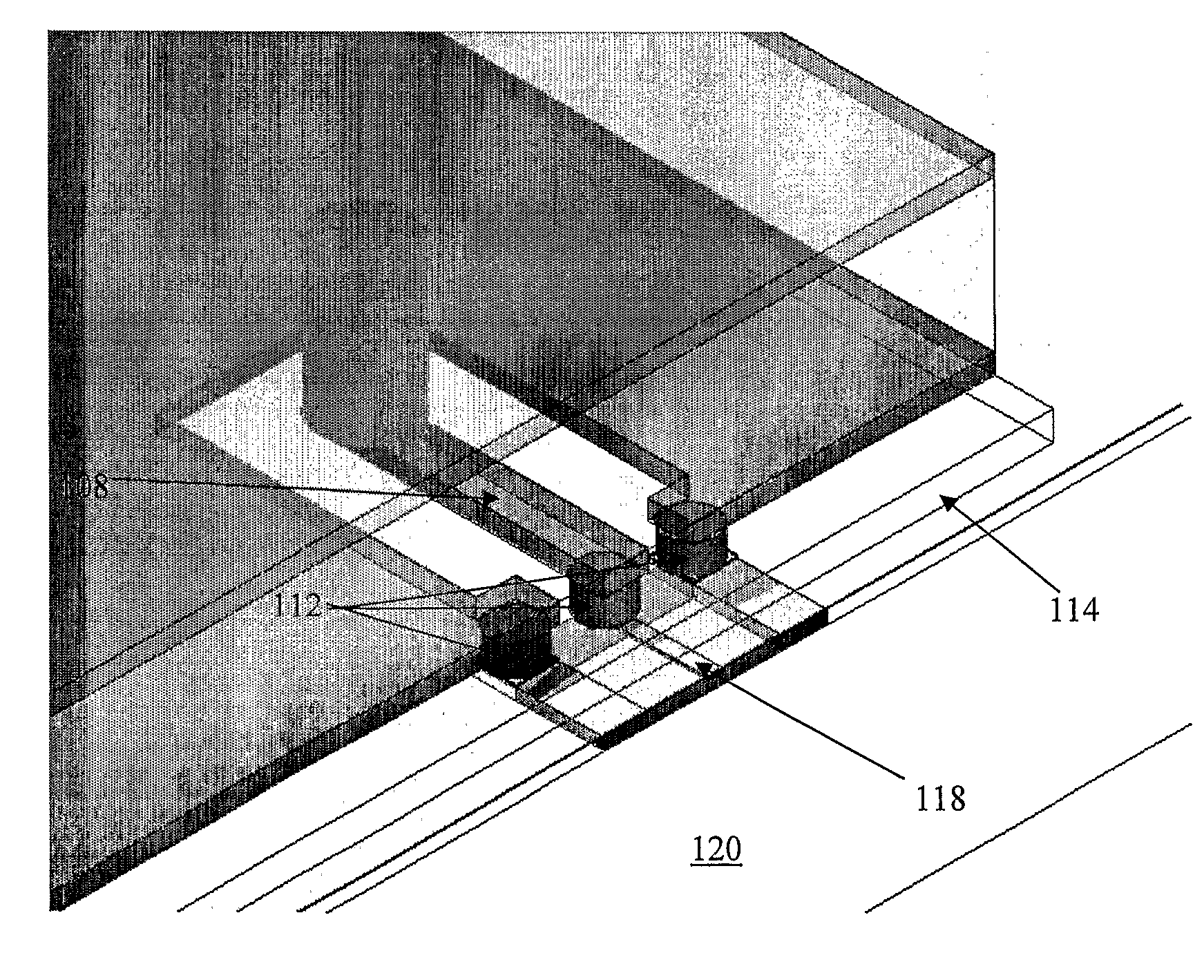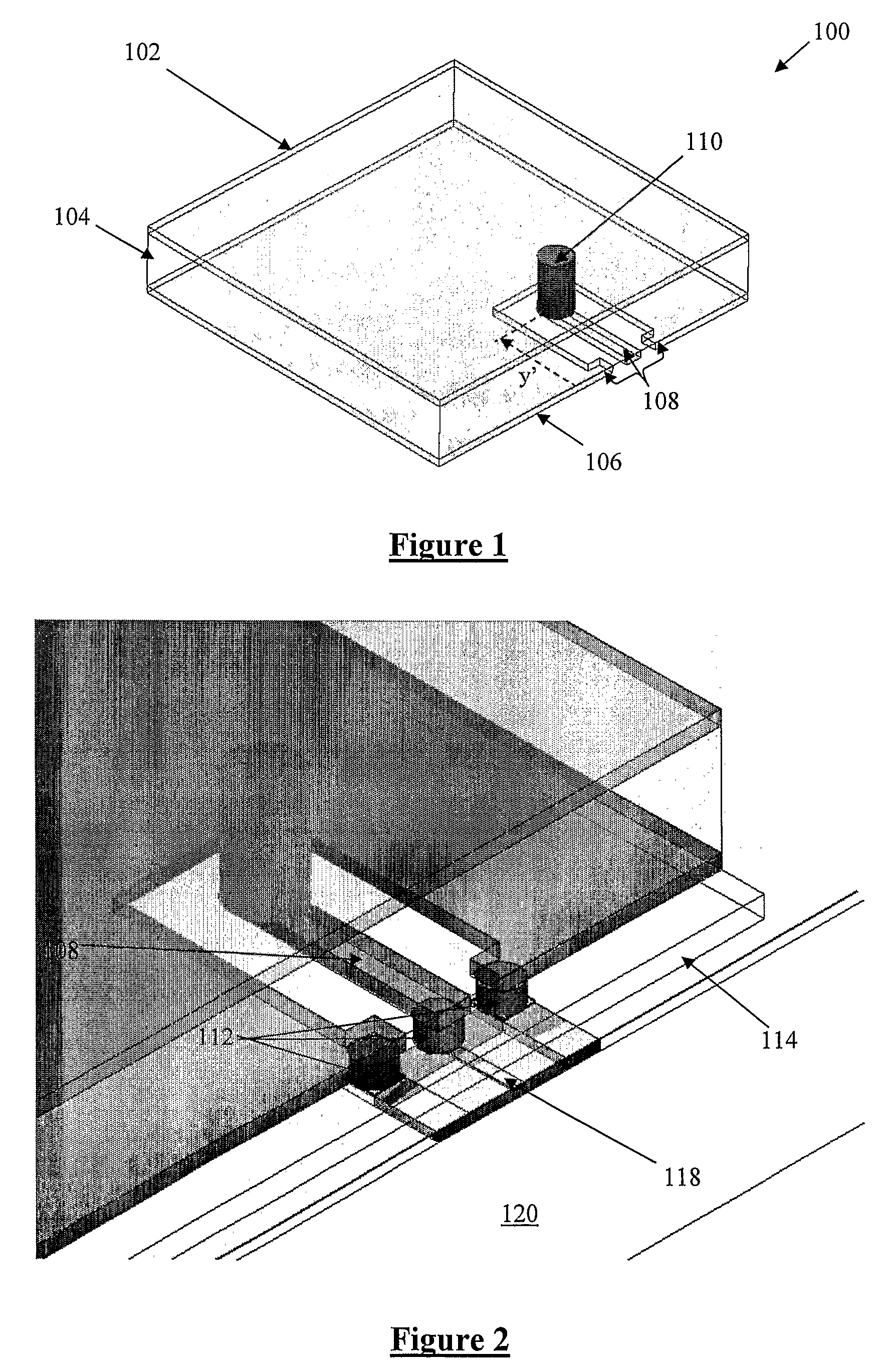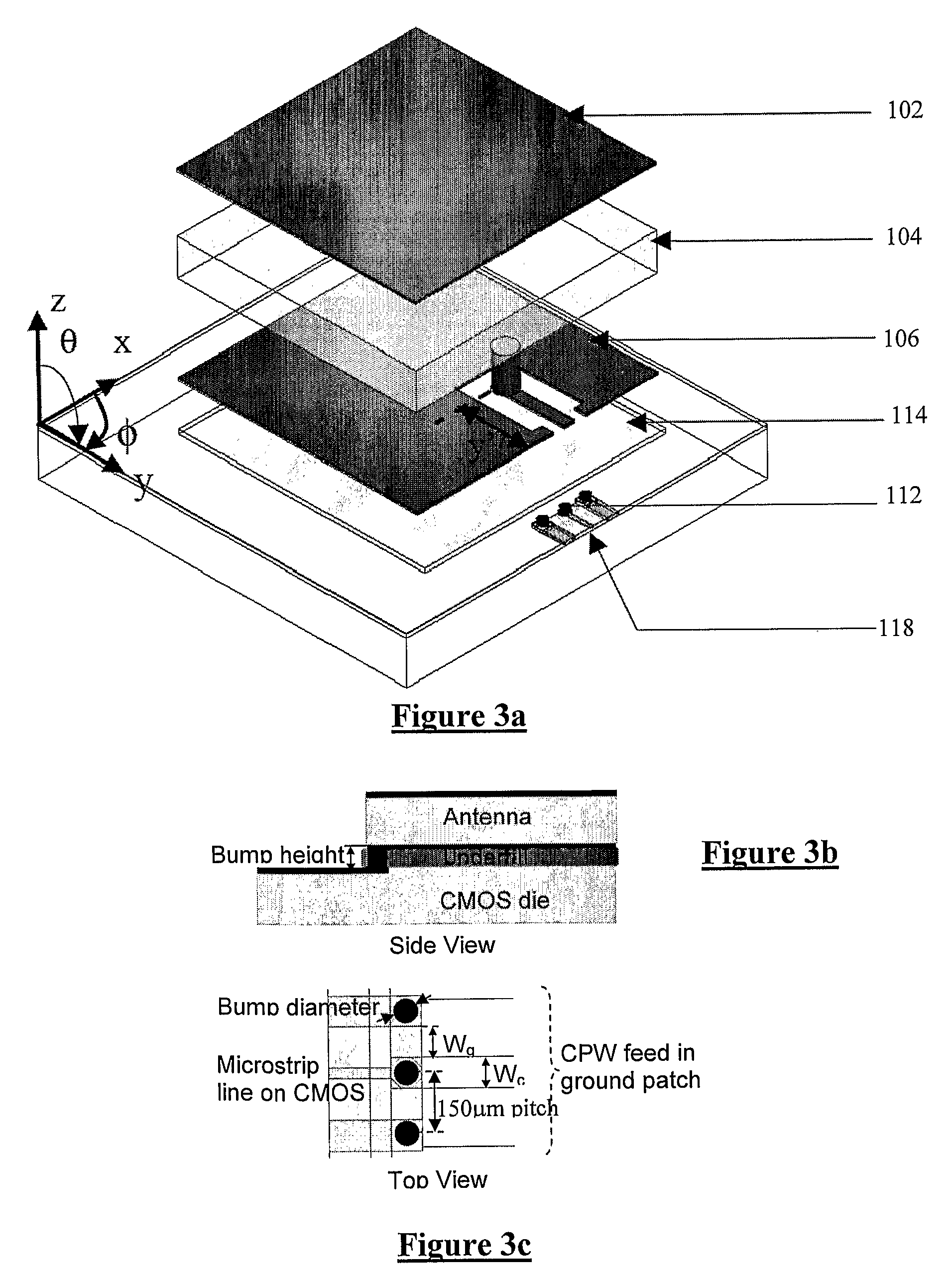Integration of microstrip antenna with CMOS transceiver
a microstrip antenna and cmos technology, applied in the direction of antennas, antenna details, antenna earthing switches, etc., can solve the problems of micromachining that is not compatible with standard cmos technology, increases costs, and raises doubts about mechanical stability, so as to improve mechanical stability, low cost integration, and low interconnection loss
- Summary
- Abstract
- Description
- Claims
- Application Information
AI Technical Summary
Benefits of technology
Problems solved by technology
Method used
Image
Examples
Embodiment Construction
[0036]The basic geometry of a microstrip antenna element 100 in accordance with one embodiment of the invention is shown in FIG. 1. The antenna is comprised of a radiating patch 102 printed on the upper surface of the substrate 104, and a ground plane 106 printed on the underside of the substrate 104. The substrate 104 is Rogers 5880 which is a low dielectric loss substrate having low dielectric constant. In order to achieve circular polarisation and 50-Ω input impedance matching the shape of the antenna patch 102 is nearly square. The radiating antenna patch 102 on the top surface of the substrate 104 is connected to the signal input on a bottom edge of the substrate 104 by way of a coplanar waveguide (CPW) line 108 extending from the signal input along the underside of the substrate 104 through an interruption in the ground patch / plane 106. The CPW line 108 leads to a feed via 110 extending through the substrate 104, with the feed location selected along the diagonal starting at t...
PUM
| Property | Measurement | Unit |
|---|---|---|
| frequency | aaaaa | aaaaa |
| dielectric constant | aaaaa | aaaaa |
| length | aaaaa | aaaaa |
Abstract
Description
Claims
Application Information
 Login to View More
Login to View More - R&D
- Intellectual Property
- Life Sciences
- Materials
- Tech Scout
- Unparalleled Data Quality
- Higher Quality Content
- 60% Fewer Hallucinations
Browse by: Latest US Patents, China's latest patents, Technical Efficacy Thesaurus, Application Domain, Technology Topic, Popular Technical Reports.
© 2025 PatSnap. All rights reserved.Legal|Privacy policy|Modern Slavery Act Transparency Statement|Sitemap|About US| Contact US: help@patsnap.com



